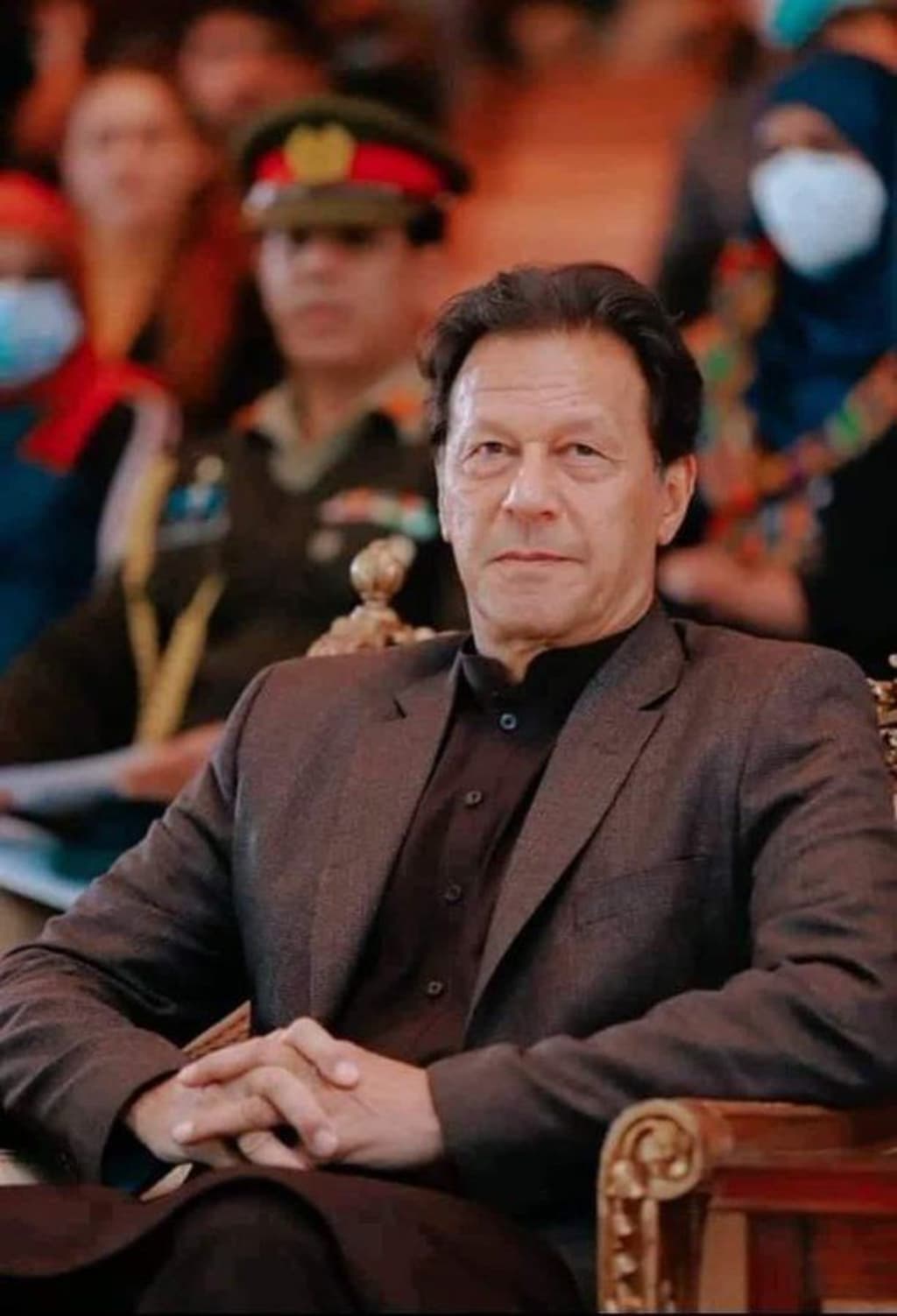Imran Khan: From Cricketer to Prime Minister
The Journey of a Visionary Leader

Introduction:
Imran Khan, a former cricketer turned politician, has made an indelible mark on Pakistan's history and political landscape. Renowned for his charisma, determination, and unwavering commitment to justice and progress, Imran Khan's journey from the cricket field to becoming the Prime Minister of Pakistan is a testament to his resilience and leadership. This article explores the life, accomplishments, and challenges faced by Imran Khan, as well as his impact on Pakistan's governance, foreign policy, and social development.
Early Life and Cricket Career:
Born on October 5, 1952, in Lahore, Pakistan, Imran Khan grew up in a privileged family. He showed early promise in cricket and quickly rose to prominence as a talented all-rounder. Imran Khan's cricket career spanned over two decades, during which he captained the Pakistan national team to its first-ever Cricket World Cup victory in 1992. His leadership skills, determination, and cricketing prowess earned him immense respect both on and off the field.
Political Activism and Philanthropy:
Following his retirement from cricket, Imran Khan embarked on a new journey as a political activist. He founded the Pakistan Tehreek-e-Insaf (PTI) party in 1996, with a vision to transform Pakistan into a just and prosperous nation. Khan's philanthropic efforts through the Shaukat Khanum Memorial Cancer Hospital & Research Centre and Namal University showcased his commitment to social welfare and healthcare, earning him further admiration and support.
Political Career and PTI's Rise to Power:
Imran Khan's political career was marked by persistence and resilience. Despite facing setbacks and electoral defeats, he remained steadfast in his pursuit of a corruption-free and progressive Pakistan. The PTI's message of justice, accountability, and economic reform resonated with a significant portion of the population, especially the youth. In the 2018 general elections, PTI emerged as the leading party, paving the way for Imran Khan to assume the role of the country's 22nd Prime Minister.
Vision and Governance:
Imran Khan's premiership has been guided by his vision of creating a "New Pakistan." His government has prioritized social welfare, poverty alleviation, healthcare, education, and the provision of clean water. Initiatives such as the Ehsaas Program, aimed at poverty reduction and social safety nets, and the Naya Pakistan Housing Scheme, focused on affordable housing, highlight his commitment to uplifting the marginalized and disadvantaged segments of society.
Foreign Policy and Diplomacy:
Imran Khan's approach to foreign policy has aimed to strengthen Pakistan's regional and global standing. He has played a pivotal role in facilitating peace talks between India and Pakistan, advocating for a peaceful resolution to the long-standing Kashmir issue. Khan has also focused on improving Pakistan's relations with neighboring countries, including Afghanistan and Iran, and forging stronger ties with China and the United States.
Challenges and Criticisms:
Imran Khan's tenure as Prime Minister has not been without challenges and criticisms. Economic struggles, inflation, and unemployment have posed significant challenges for his government. Critics have questioned the efficacy of his governance, particularly in terms of achieving the ambitious promises made during the election campaign. Additionally, Khan has faced criticism regarding media censorship and the shrinking space for dissent and freedom of expression in the country.
Legacy and Future Outlook:
Imran Khan's legacy will be shaped by his ability to deliver on his promises and address the multifaceted challenges facing Pakistan. His commitment to anti-corruption measures, social welfare, and sustainable development will continue to be scrutinized. As his tenure progresses, it is essential to evaluate the long-term impact of his policies on the country's economic stability, social development, and democratic institutions.
Conclusion:
Imran Khan's journey from cricket legend to Prime Minister exemplifies the power of determination, vision, and leadership. While his governance and policies have faced challenges and criticisms, Khan's commitment to social welfare, anti-corruption, and foreign policy diplomacy has left an indelible mark on Pakistan's political landscape. As his tenure continues, the legacy of Imran Khan will be defined by his ability to overcome obstacles, implement effective reforms, and steer Pakistan toward a more prosperous and inclusive future.
About the Creator
Muqadas baloch
I am article writer and I am from pakistan subscribe me to keep updated from my newest stories.






Comments (1)
Muqadas baloch is not accepting comments at the moment
Want to show your support? Send them a one-off tip.